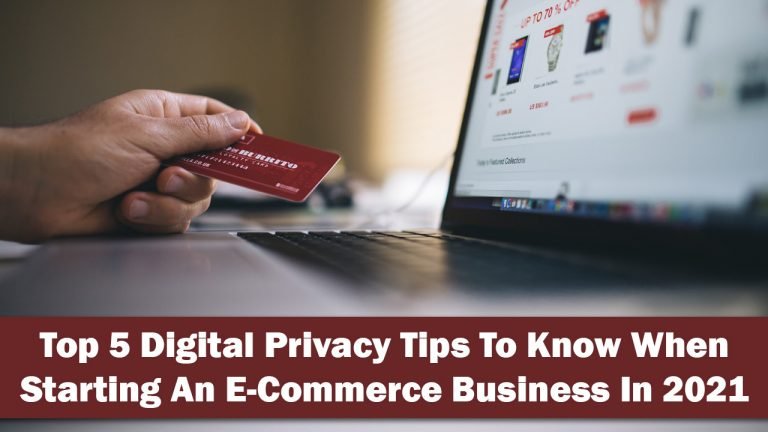
E-commerce is a booming industry.
With a sales prediction to touch 4.5 trillion dollars in 2021 globally, it is one rising star. If your start-up is part of this futuristic economy, you are already on the right track.
But here’s a word of caution.
The internet business sure is exciting. But where the opportunity is high, the risks are too.
Data security breaches, identity frauds, consumer data privacy protocols – a lot can potentially go wrong.
Insufficient knowledge of potential risks and security has resulted in almost a 2.9 billion-dollar loss in 2014.
But no matter how fatal the risks look, taking a strategic approach towards securing your digital assets can effectively protect your start-up.
Here’s what you can do?
Start with mapping the critical threats that make your start-up the most vulnerable.
This will give you a clear understanding of the most powerful solutions for each category of risks to safeguard your online store from.
So, let’s dive in.
Major Risks For Your E-commerce Start-up In 2021 And What Can You Do To Beat Them?
1. Financial threats
Financial data losses are perhaps the most critical threat that can break the spine of your e-commerce start-up. Sensitive data like your consumer’s financial details of credit card, bank account, CVV numbers, and others are more susceptible to get stolen by hackers.
So, how do you ensure that you give your customers the confidence of transactions?
Here’s how?
a) Use secured payment gateways

Storing your customer’s sensitive information like credit or debit card credentials in your ecommerce store’s database is a huge liability.
Think of this.
One fateful security breach and all the data can fall into the wrong hands of hackers. What follows is a potential business loss that can stay beyond repair. All the trust and rapport you built with your customer over the period breaks in one strike. You should never store your customer’s payment information, especially when legal charges are enforceable by FACTA. But this risk management drill cannot make your security robust. You need to go one step further. To steer clear of trouble, stay updated on your payment gateways. Using third-party vendors like PayPal, Wordplay, Paytm, and Skrill are an excellent way to keep up.
Pro tip:
Obliging to the PCI DSS compliance rules is a must-watch while you are securing your payment gateways.
b) Use encryption technology
Encrypting your customer’s financial data can ensure better security in a virtual environment. Limiting the authorization and access of this data automatically improves the conditions of data theft. To achieve so, you can use tools like cryptographic keys, end-to-end encrypted passwords, and certificates.
c) Render a secured web experience
A secured web environment is one of the determiners of the quality of customer experience you deliver as a brand. It goes without saying then that a secured site and server link is a top priority. Use SSL (Secured Socket Layer), and the HTTPS server network makes sure that you can render security without a sweat.
d) Choose a security-first ecommerce platform
While your venture’s success indeed rests upon your shoulders, a significant amount goes on whom you partner with to fuel your business. You’ll find multiple payment processing and e-commerce platform service providers, but it can get tricky to find your business’s best one. So, always look for market reputation and reviews. Be thorough with your research of partners. eBay, Craigslist, Etsy are all e-commerce magnets that you can rely upon.
e) Deploy multi-layer security
Widespread Content Delivery Networks (CDN) and two-factor authentications can prove to be a robust security design for your e-commerce site.
f) Deploy security plugins
Security plugins are one of the most time-efficient ways to protect your site from malicious cyber-attacks. From bots to SQL injections to XSS, an ideal security plugin keeps you covered from all. Astra is one of the best plugins you can consider installing on your site.
2. Consumer data threats

Your consumers today have grown hyper-conscious about their data sharing. A Gartner study shows 8 out of 10 customers would abandon a brand that uses their data without prior consent. To still stay relevant to your audience without damaging their privacy, you need to get creative.
Here’s our solution.
a) Stay on top of your data privacy rules
Staying updated with the changes in the privacy policies can improve customer data security immensely. From ccpa compliance to GDPR compliance, there is a vast array of data privacy policies that your online business needs to obey during operation.
b) Deploy clear data usage and privacy policy
Although your consumers are reluctant to disclose their details more often today, they still want you to personalize their experience. Studies show they would trade details for an improved shopping experience. Use the power of personalization to get the required details. Also, state your purpose and goals of your collected consumer data usage as clearly as possible.
c) Promote strong password hygiene
Educating your consumers against security risks can bring a lot of value towards building robust security. What’s more? It places you as a brand that cares about its consumer’s security. You can start this by promoting strong password hygiene. Make your customers change their passwords every 120 days.
d) Stay clear on terms of accountability
Data breaches don’t happen only because of your business’s internal process. Your vendors and collaborators play a dominant part here .So how do you seal this leak? Ensure that you render minimal data to your third-party vendors. Moreover, put them on a binding contract with a data security clause. Limit the ways of data usage to particular forms only. But this should not be limited to external collaborators only. Your employees too should be under a similar contract. You can check a sample employee NDA template for better understanding.
3. Intellectual Property Threats
Intellectual property thefts are the most common abuse of the internet. Hackers can utilize your brand value for various purposes. But to stop losing your brand value, you can deploy the following steps.
a) Identity frauds
Identity stealth can affect both you and your customers badly. But with a little discipline, you can protect your business. Stay on top of your credit report regularly. Using monitoring software can add immense value here. Encrypt your consumer’s sensitive data like password, username, and financial details. Create encryption access criteria to limit the data usage within a closed group. Escrow groups are an excellent method to secure your brand too.
b) Anti-phishing strategy
Hackers impersonating your brand in front of your customers can steal their personal information easily. Educating your customers and employees alone cannot ensure you are safe from phishing. You need more.
Keep vigilance of spoofing sites regularly. The faster you detect the problem, the better will be your damage control. But if this threat is occurring on your website, encryption technology can provide immense help here.
4. Network Sniffing

Infiltrating a secured network between a server and client to scrape sensitive data has been on the virtual space for quite some time. But the good news is there are some powerful tactics to keep your venture out of vulnerability.
a) Deploy firewall systems
A firewall is a very cost-effective method to secure your network in the long term.
The best firewall system has an optimal filtering mechanism regulating the total populated traffic on your site. It allows entering your site that comes from trusted networks only. As a result, the vulnerability of network corruption goes low.
b) Switch to secured servers and admin panels
Password protection should take the number one position in your data privacy attempts. Having simple passwords that are hardly updated regularly are easily hackable. You can prevent so just by opting for a complex password and frequent update. To make the drill even more robust, and ensure to turn on the notifications of your admin panel. This will ensure that you get notified every time an unknown IP address attempts to check-in.
5. Ransomware

The most tout malicious kind of virus that you can ever get affected by is ransomware. No wonder it is also called malware. Ideally, in a ransomware attack, all your data access will be ceased, or you would be threatened with your data going public until you pay the demanded ransom.
Here’s what you can do.
- Always have a backup for all your data and store it in a diverse network.
- Beware of email links. These are the most vulnerable areas where you can fall into the bait.
- Educate your employees, collaborators, and customers alike. It will only strengthen your stakeholder bonds.
Conclusion
The internet is both a boon and a curse for your e-commerce business. Where you meet the loyal fans of your brand, you meet your hackers. So it is essential for you always to stay updated on the current events of your industry and internet regulations.
The above tips and tricks can surely alleviate your problems for now, but the only sustainable solution to your problems is reiterating your process. More importantly, always stay on top of your security audits.
Remember, a little mindfulness can save you a lot of resources and frustrations.
